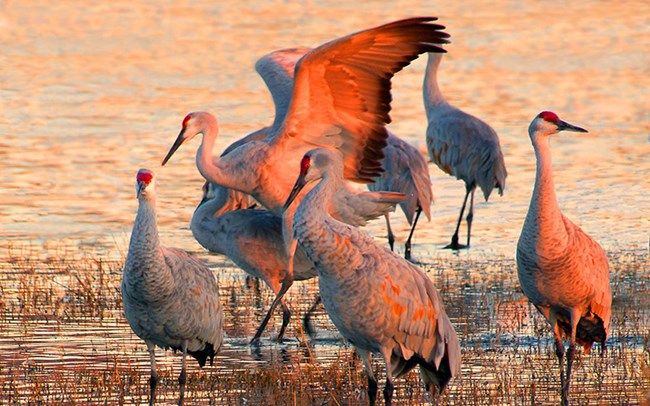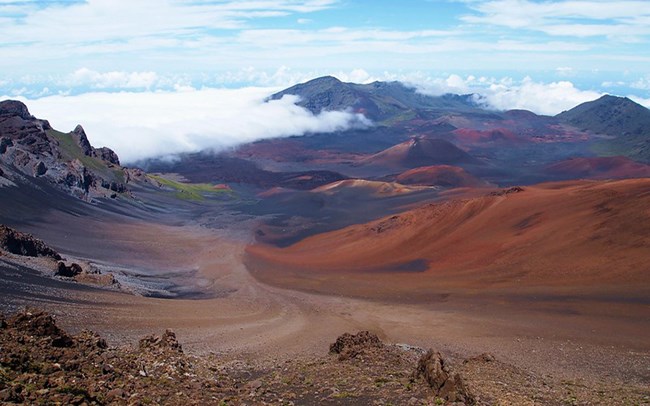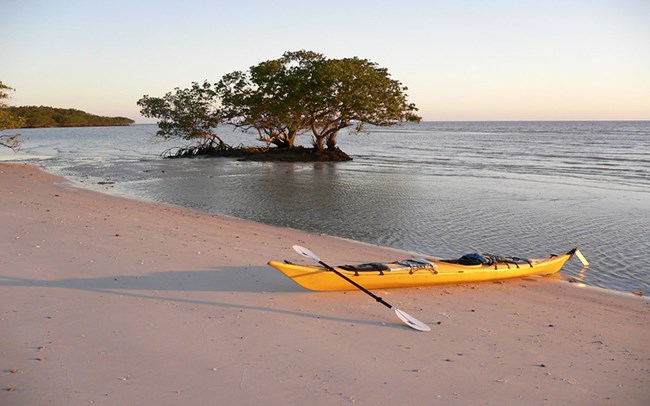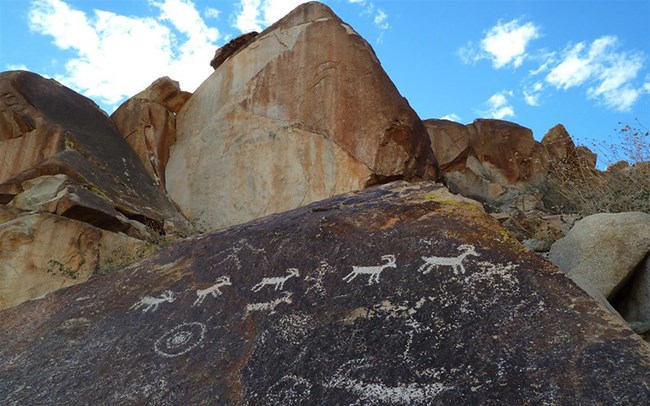
Photo Credit: NPS/Gavin Emmons
The term "wilderness character" was first referenced in the 1964 Wilderness Act. The Act states that federal agencies, like the NPS, are responsible for preserving the wilderness character of wilderness areas.
Wilderness character is a holistic concept based on the interaction of (1) biophysical environments primarily free from modern human manipulation and impact, (2) personal experiences in natural environments relatively free from the encumbrances and signs of modern society, and (3) symbolic meanings of humility, restraint, and interdependence that inspire human connection with nature.
This includes intangible qualities like developing a connection with nature, inspiration, relaxation, or a sense of adventure. Wilderness character also includes five tangible qualities associated with the biophysical environment:

Photo Credit: NPS/Patrick Myers
Natural Quality
Ecological systems are substantially free from the effects of modern civilization.
This quality recognizes the importance of healthy, intact ecosystems and challenges us to limit our negative effects on the functionality of these systems.

Photo Credit: Ken Simpson
Untrammeled Quality
Wilderness is essentially unhindered and free from the intentional actions of modern human control or manipulation.
This quality recognizes the importance of people co-existing with our planet, where people practice humility and are very selective and thoughtful about actions we take that might interfere with the rest of the natural world.

Photo Credit: NPS/Katy Cain
Undeveloped Quality
Wilderness is essentially without permanent improvements or the sights and sounds of modern human occupation.
This quality recognizes that while developments, like structures or use of motorized equipment, are very important and appropriate in many places, wilderness gives us a chance to consider more traditional ways of interacting with the rest of the natural world.

NPS Photo
Opportunities for Solitude or Primitive and Unconfined Recreation Quality
Wilderness provides opportunities for solitude or a primitive and unconfined type of recreation.
This quality recognizes many recreational activities are appropriate and compatible with wilderness, especially those that rely on human power and give us a chance to 'unplug.'

Photo Credit: Peter Landres
Other Features of Value Quality
Wilderness may also contain ecological, geological, or other features of scientific, educational, scenic, or historical value.
This quality recognizes the centuries-old and rich cultural traditions of indigenous people and other residents to lands now managed as wilderness. These important cultural and historical connections can be explored in this quality, along with the values we place on things like scenery, science, and education.
Last updated: October 10, 2023
